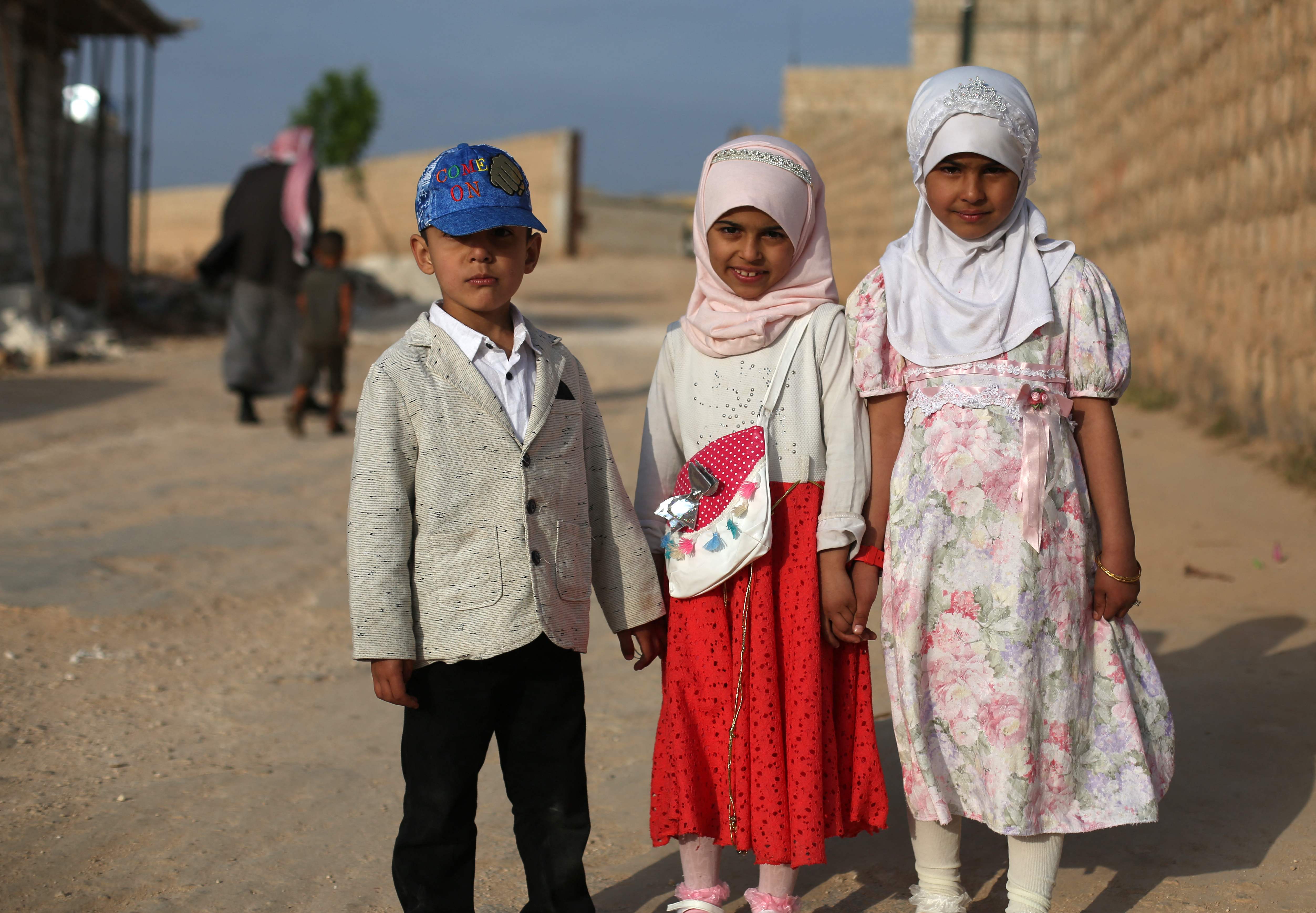‘Coming to school makes me very happy’: Syrian girls will see their futures destroyed by UK aid cuts
Fewer girls in school also means rises in child marriage, early pregnancy, child labour, child trafficking and exploitation, writes Jessica Adams


Sidra is just like any 13-year-old girl who has passion for her own education. She loves school, and dreams of becoming a lawyer. “As soon as I get home, I do my homework, so I can come to school well prepared. Coming to school makes me very happy as I see my teachers and my friends.”
However, Sidra’s school is under threat. She lives in a tent in a displacement camp in Idlib, northwest Syria and her school is effectively just a bigger tent. She is from Hama, but left due to “bombing and shelling – all of our houses and our school got destroyed”.
At Action For Humanity, the parent charity of Syria Relief, we operate Sidra’s school. However, due to budget cuts from donors like the UK government, her school is one of hundreds whose future is at risk.
This time last year, we ran 306 schools, providing over 100,000 children with an education. If we do not secure funding to keep operating the hundreds of schools facing severe financial uncertainty, we’ll be running just 24 schools for 3,600 children. As soon as August, we could be down to zero due to reduced funding to Syria from multiple donors.
As Syria falls out of the news, despite the fact that the war is ongoing, donors pull funding and schools close. As schools shut their doors, children fall victim to a life inside a warzone, but outside of full-time education.
Immediately after becoming foreign secretary, Liz Truss, who is also the minister for women and equalities wrote: “Women and girls are at the heart of the freer and fairer world I want to see. They need the freedom to live the lives they deserve, yet many worldwide are dehumanised as second-class citizens, denied the same opportunities as men and subject to acts of violence or even death.
“I am fighting to change that as foreign secretary and equality minister by pursuing my personal priorities: empowering more women and girls with the opportunity offered by quality education and employment, and ending the violence they suffer.”
Yet, of the 40,160 children who may be out of school, 20,605 would be girls. Even with schools open, 22 per cent of communities surveyed by UN OCHA report child labour as frequently occurring, whilst 18 per cent report child marriage as very common. Twenty eight per cent of families have withdrawn children from school to have them work, to take part in early marriage or migrate due to lack of food.
A report released by Syria Relief/Action For Humanity finds that if the UK government cutting its budget from 0.7 per cent of gross national income to 0.5 per cent means fewer girls in school – then it will also mean rises in child marriage, early pregnancy, child labour, child trafficking and exploitation. We’ll also see more boys joining military or armed groups.
To keep up to speed with all the latest opinions and comment, sign up to our free weekly Voices Dispatches newsletter by clicking here
Most of the girls we speak to in our schools want to be doctors, lawyers, engineers and teachers. Few dream of becoming a child bride and mother. However, the UK aid budget risks condemning many of them to that future.
Whilst schools like Sidra’s may look like tarpaulins and poles, to families here, it is their best hope for a better tomorrow. Abu Halid, who has three children at the school, says that his children were out of education for five years due to displacement. “They forgot everything they had learned, but thanks to this school, they are able to learn again. We need the school to stay open.”
This is not just about Syria. Any developing or fragile context where donors like the UK government are reducing funding will see families forced to resort to negative coping mechanisms, and progress towards equality for girls will be dramatically lost.
Jessica Adams is head of communications at Action For Humanity






Join our commenting forum
Join thought-provoking conversations, follow other Independent readers and see their replies
0Comments